The sunlight falls perpendicular and distorts the contour of dozens of people who pass, in a constant stream, the driest desert in the world in the north of Chile.
They are migrants, many of whom have entered the country in recent days driven by fear that the far-right candidate will win the presidential elections and close the borders.
- Chile detects the first case of the omicron variant of the coronavirus in Santiago due to community transmission
- Investigation reveals that the father of Chilean candidate José Antonio Kast was a member of the Nazi party
- Ómicron: Chile confirms three cases of the new variant and four under study
Although the porous boundaries between the north of Chile and Bolivia are in practice uncontrollable, José Antonio Kast, who prevailed in the first round of November 21 with 27% of the votes, anticipated that if he was elected president in the ballot of 19 December will seek to build a ditch to prevent the arrival of more foreigners to the country. Instead, the left-wing candidate Gabriel Boric promised an immigration policy “Regular, orderly and safe”.
Paradoxically, one of those trenches created in the past, approximately four kilometers long, allows hundreds of migrants, dragging their suitcases through the dust as if it were the sliding platform of an airport, to leave behind Bolivia and a collection of borders and walk. towards the dream of a better life in Chile.
One of those people who is dragging a cart full of suitcases and bags and six backpacks while walking with two 8- and 11-year-old children and carrying a 6-month-old baby is Virginia Carrasco, a 30-year-old business administrator. Like many of those who arrive through the unauthorized passes from the north, she is Venezuelan.
Carrasco undertook the journey alone with her children. She crossed six countries in six days taking eight buses and a boat that helped her cross the border between Bolivia and Peru. He invested about $ 700 in the journey and received the help of other Venezuelan immigrants with the transfer of their belongings.
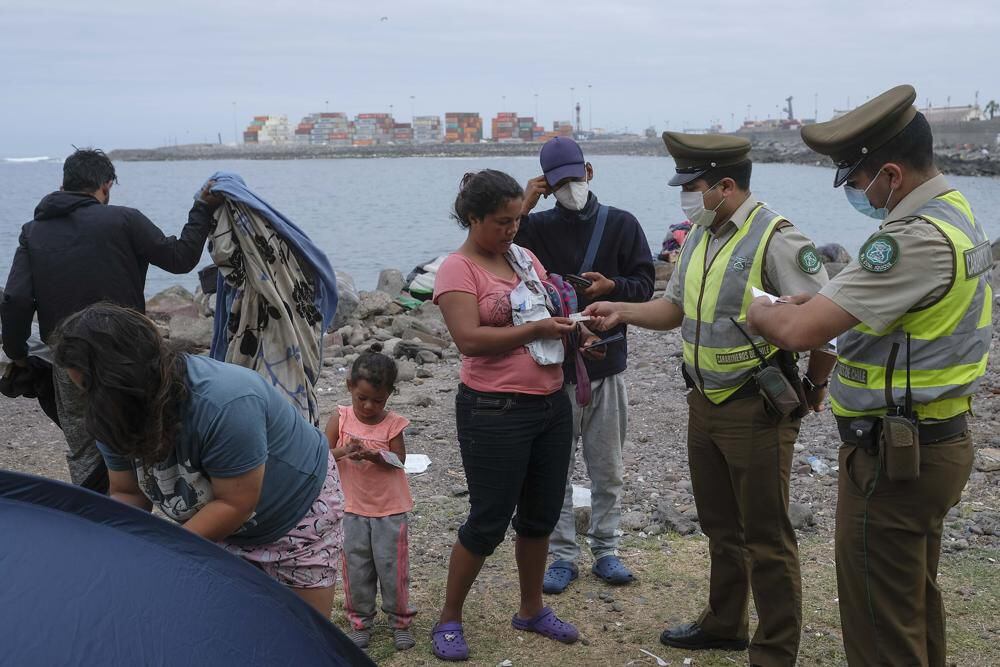
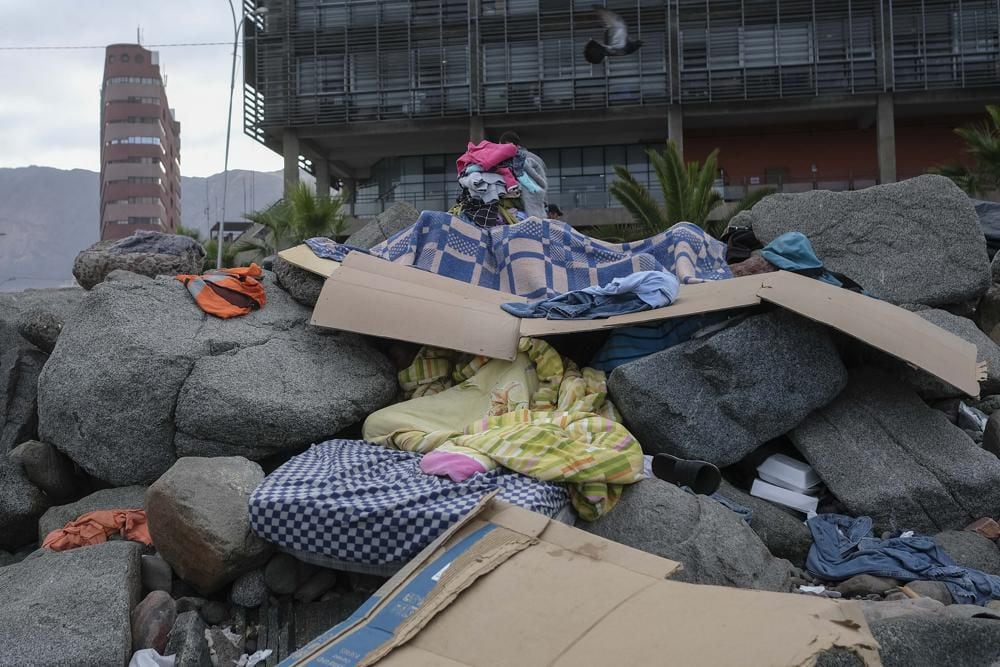
He was lucky not to run into those who do business with despair. This year 31 human traffickers were arrested in that region and 107 throughout the north by the Chilean police, including Bolivian cholitas who know the territory well.
According to the Chilean police, at least 250 migrants were deceived and others suffered worse luck: according to the Jesuit Migrant Service, so far this year at least 19 people have died, including a baby, from hypothermia, dehydration or collapses caused by the desert climate.
For Carrasco, the hardest phase of the journey is waiting for the father of her two oldest children to come and pick her up. The woman waits sitting on the ground with her head resting on a stone wall, wearing a hat that protects her from the cold. Beside her her older children rest on suitcases, which they use as mattresses. In the heart of the Andean highlands, at 3,700 meters above sea level, conditions are always extreme and it is difficult to breathe.
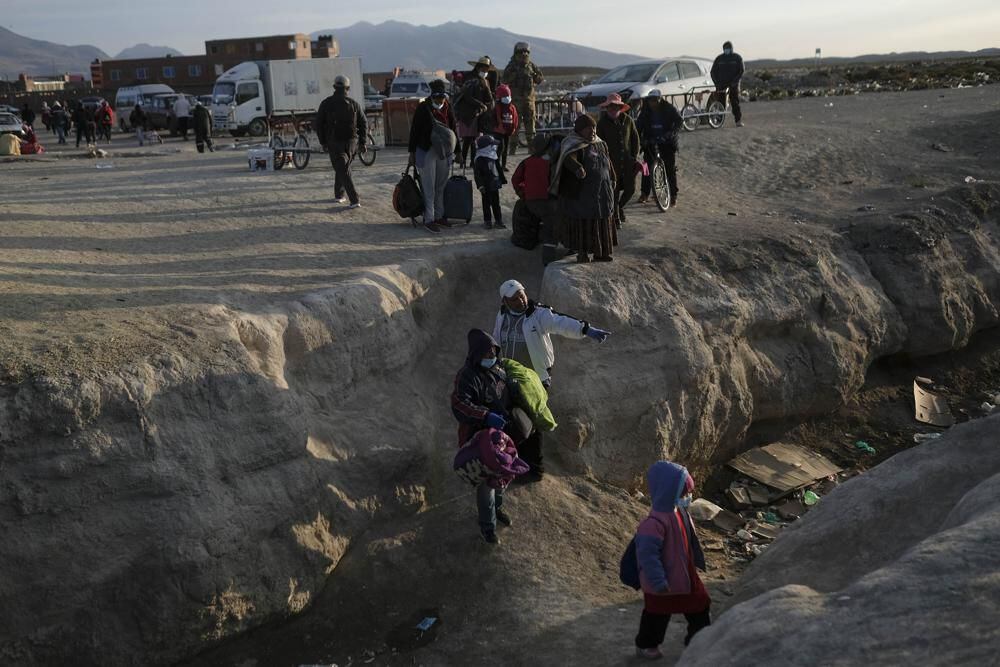
Carrasco seeks education, quality of life and better health for them. His 8-year-old daughter suffers from alopecia and according to the experts he consulted could have a component of “emotional detachment “ for being separated from her father, whom she has not seen for more than five years.
“In the hospitals of Venezuela nothing is obtained, there are people who have died because they cannot obtain medicines or doctors. I hope from Chile a better quality of life for my children, that’s why I came here “the woman told The Associated Press.
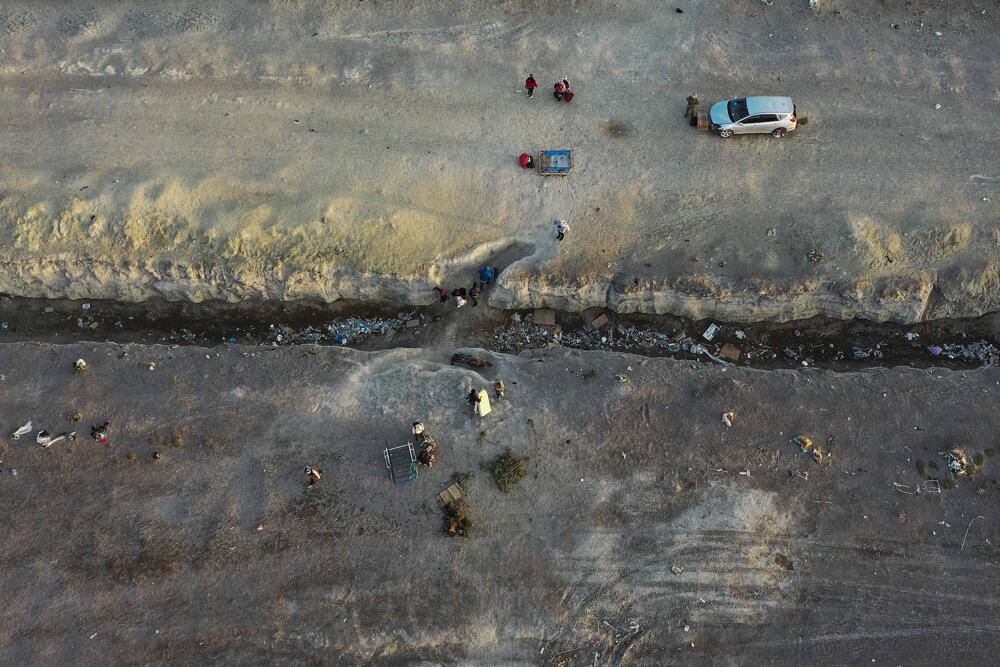

Although the father of her children has permanent residence and tried to get them a visa through official channels, it was denied them. Only 14% of the visas requested by Venezuelans were approved in 2021. A ruling from the Comptroller’s Office recently forced the Chilean Foreign Ministry to review the denials of family reunification visas for Venezuelans.
Carrasco hastened his arrival in Chile “For fear of elections” already “Maybe the candidate who blocks the borders will win.”
There are several immigrants who adduce the same reason for hastening their entry to Chile.
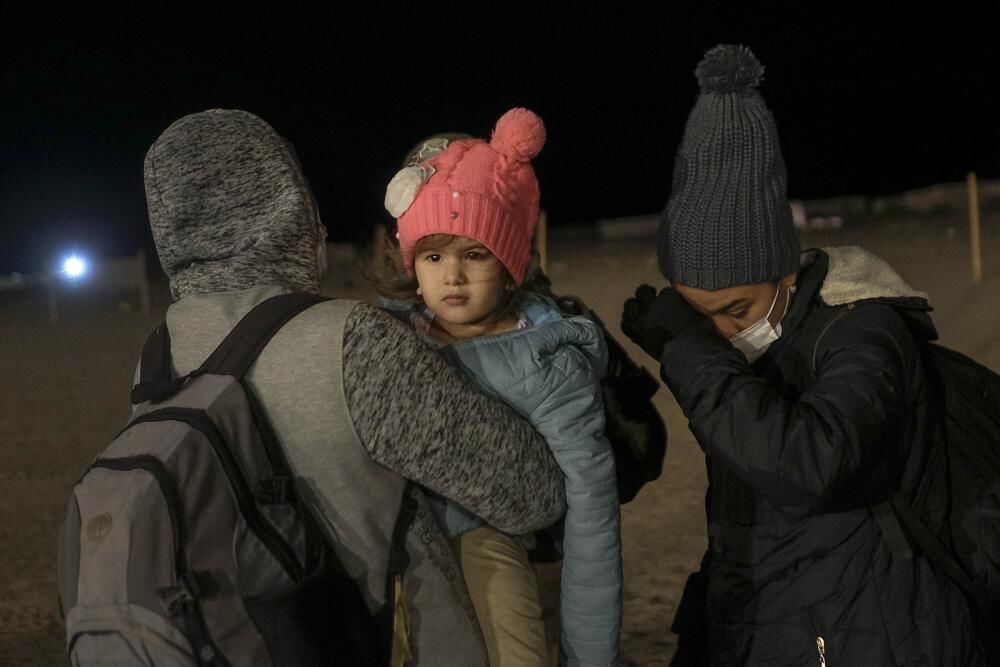
“We had to pass right now for fear of being returned”Colombian Tatiana Castro explained to AP. “We arrived before the elections. They do not know how hard it is, we have to go through many countries and across many borders where it is hard for us, we have to endure hunger, needs, cold … where there are children who get sick “he added.
“We have relatives here in Chile who told us that we had to come before December 19, because if the one who won the first round wins again, he will close all borders”, explained to AP Rayber Rodríguez, a young Venezuelan who was traveling with his wife and a tired little girl with a hat and coat, which he carried in his arms.
In Chile there are almost 1.7 million immigrants and according to the UN International Organization of Migrants it is the second country with the highest percentage of immigrants in the region. A novelty that is still difficult to assimilate in a country that lived for decades geographically and politically isolated.
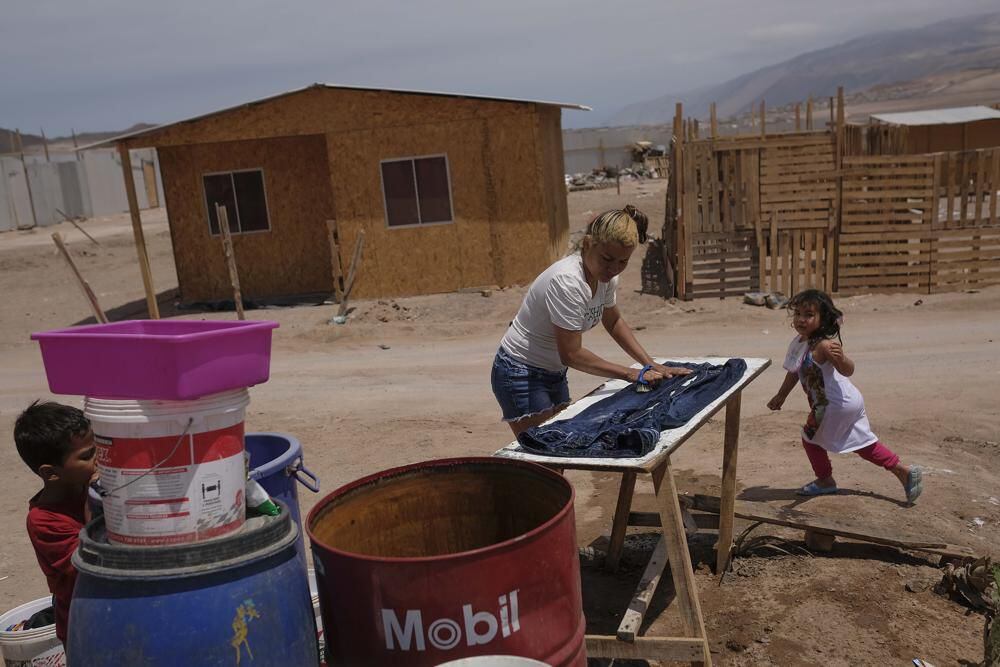
So far this year more than 25,000 people have arrived in Chile through the Atacama desert, according to official figures. A significant increase compared to the 16,500 for all of 2020.
Those who manage to cross have two options: self-report -a process that technically helps them not be expelled-, or wait in a tent where they are forced to take a test of COVID-19 and wait for the result before being sent to their destination on official buses or continuing to walk. Some choose to continue on foot on the highway to Iquique, more than 1,500 kilometers north of Santiago. The city has spent months with public squares, beaches and other places taken by migrants who hope to raise the money necessary to travel to the areas of the country where they have family or friends.
Faced with the discontent of the inhabitants of Iquique, who recently burned belongings, diapers, toys and children’s carts of Venezuelan migrants who were camped out on the streets in a demonstration that caused worldwide rejection, the government agreed to set up shelters.
The borders have been guarded for months by the police and the army. The border crossing point in the desert, which was always empty years ago, now looks like the transit area of a train terminal station.
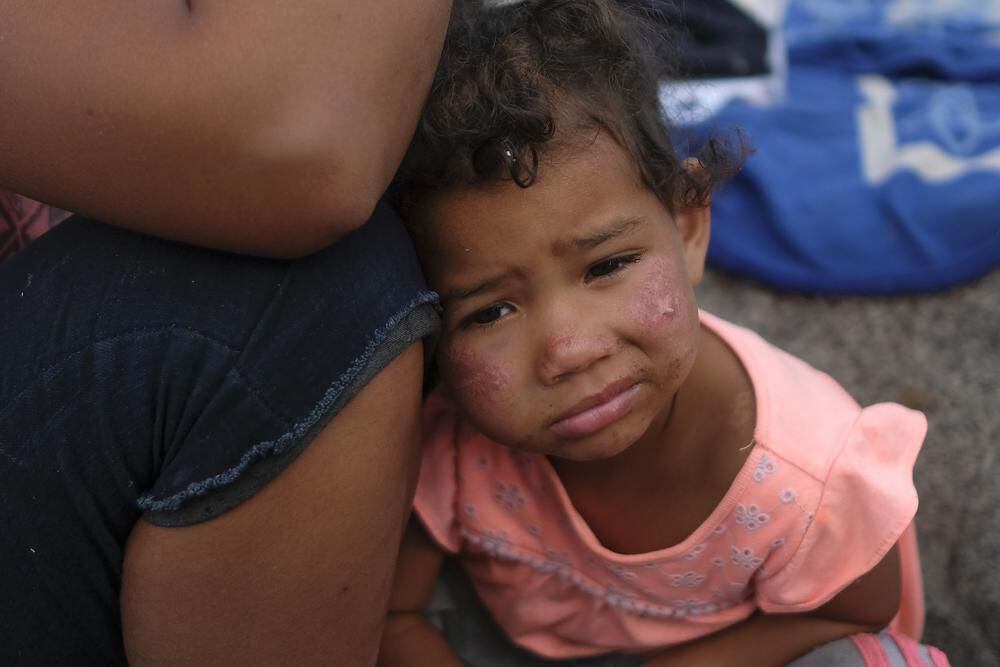
“Today we have the constant entry by unauthorized steps of Venezuelan citizens, mainly”Major Mario Palma, from the Chilean police, explained to AP. “Once they have entered the national territory, the first contact they have is with the Carabineros (police) and the army ” who deal with the records “and also to listen to them regarding the entire journey they had to make to get to the country “added.
Not far from there, the small town of Colchane -with fewer than 1,600 inhabitants, mostly Aymara indigenous- it has been overwhelmed several times by the number of migrants, which sometimes doubled the local population.
The community has suffered the theft of its belongings and the occupation of its spaces and few public buildings.
“We can’t take it anymore, I want with the Kast that no more immigrants pass through. There is a lot of immigrants ”, Nicolás Mamani Gómez complained. “How are we in Colchane? … Piled up immigrants, Venezuelans, Colombians. What people are they, bad people or good people? ”, added.
Last Sunday a demonstration in favor of Kast received majority support in this town with traditional customs.
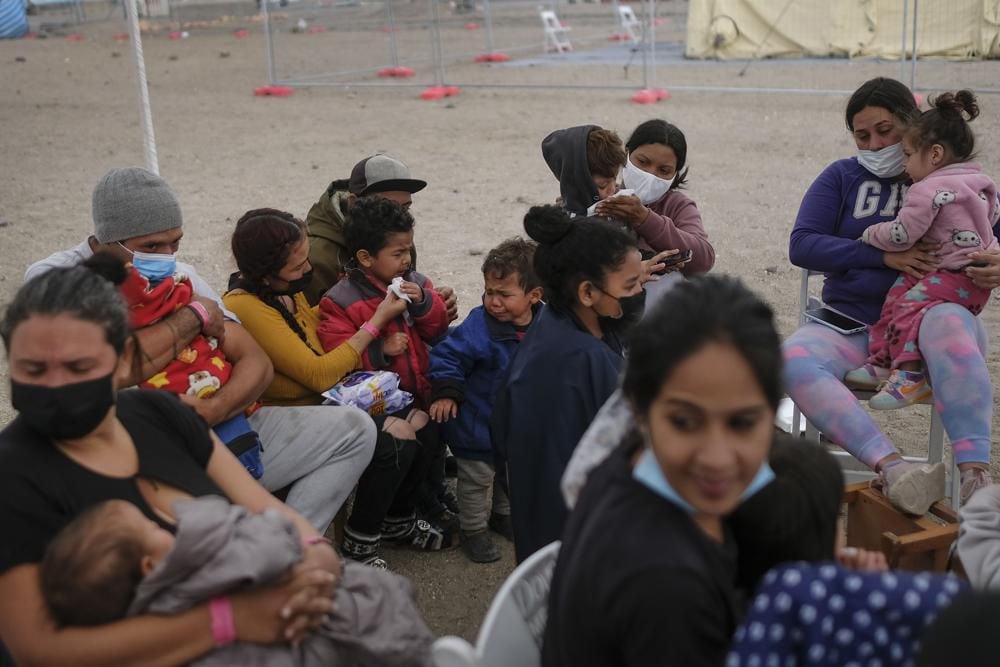
According to official data, 85% of the inhabitants of the Colchane They lack basic services, many do not have access to water, until a few months ago they did not have a continuous electricity supply, they do not have internet in their homes and 63% have high rates of poverty.
“We are very affected” due to the migratory crisis, Jorge García told AP. “The community is bad, this phenomenon has hurt us a lot ”, he pointed. “For us it is of concern, they have robbed us, we can no longer live happily, calmly”, he assured.
_________________________________
- Next pandemic could be “worse or deadlier,” warns Oxford / AstraZeneca vaccine creator
- How the new Super Green Pass complicates social life for the unvaccinated in Italy
- Flight MH370: can one of the great mysteries of aviation finally be solved?
- Plumber finds money hidden in the wall of a megachurch (and could have solved a mysterious robbery from 2014)
- They find dead a young Brazilian woman who was missing and who was forced to dig her own grave
- US Congressman Releases Christmas Family Photo With Guns, Days After School Shooting
.

:quality(75)/cloudfront-us-east-1.images.arcpublishing.com/elcomercio/OFS4O5KPJRDW5LEO4I2BF6YWPE.jpg)

:quality(75)/cloudfront-us-east-1.images.arcpublishing.com/elcomercio/NTCWIM4TFRHULEHO63AN3LQX6E.jpeg)
:quality(75)/cloudfront-us-east-1.images.arcpublishing.com/elcomercio/HC4XATKIGBAH5G47Y5CJNTIJOU.jpg)
:quality(75)/cloudfront-us-east-1.images.arcpublishing.com/elcomercio/CT45GZCKZNDSTJYIGEIUW55KGA.jpg)
:quality(75)/cloudfront-us-east-1.images.arcpublishing.com/elcomercio/Y6X64YEODNH2RAAJJCRUG6VBD4.jpg)
